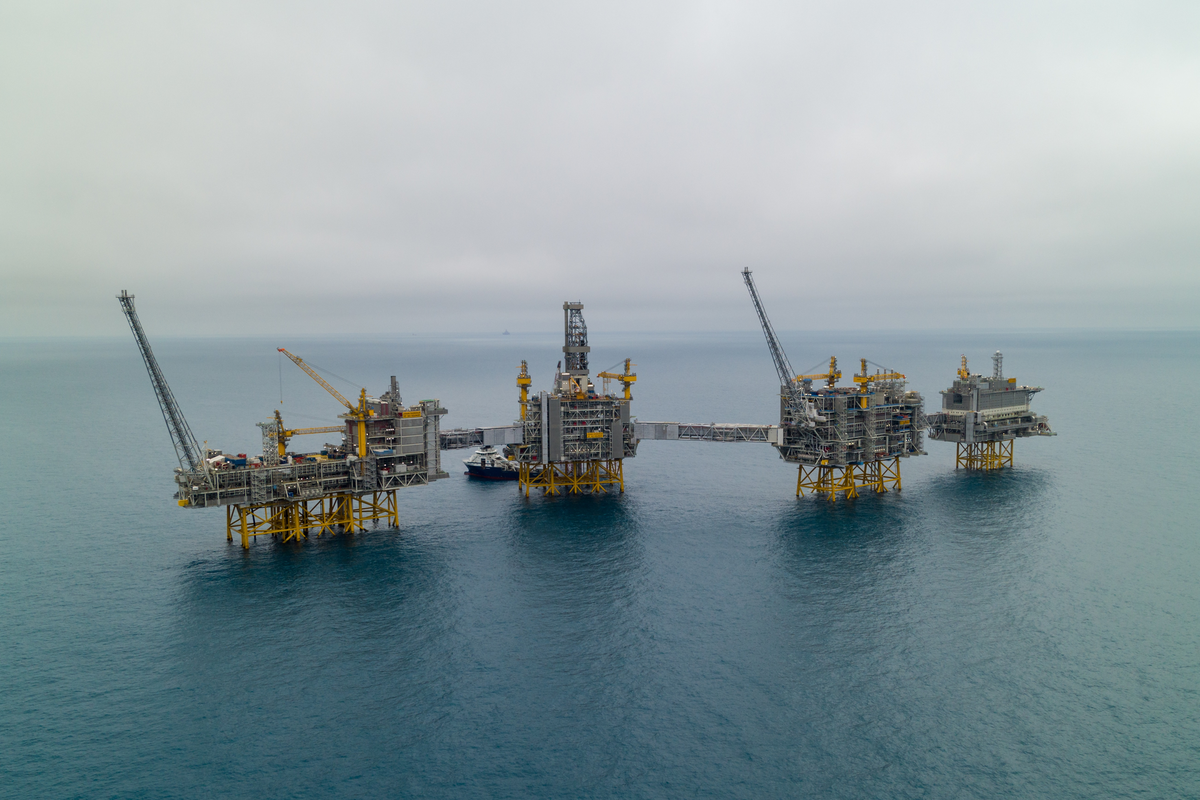A shift to operating Norwegian oil rigs remotely from land has raised concerns over the loss of well-paid jobs and its impact on the safety of offshore workers.
Lower oil prices and the coronavirus crisis are accelerating this shift.
According to Audun Ingvartsen, a union leader of Lederne, their members are still wondering whether onshore controls are good enough and safe enough.
Ingvartsen and Hilde-Marit Rysst, the head of another union, Safe, said their concerns are based on situational awareness among those working offshore and on land.
On the other hand, Jarle Eide, a representative of the Industri Energi union at Equinor, noted that workers were more confident now in using remote controls.
Eide acknowledged that there is always a risk and things can go wrong, so you have to be focused on safety even during your spare time,” he added.
Aker BP's Ivar Aasen field was the first manned offshore platform to be managed remotely, which has about 50 people working on the rig while operated on land by another 14.
Aker BP and Equinor both have moved controls onshore gradually and ensured that workers on the platforms are able to take over necessary control, with emergency response available nearby.
Oil companies started experimenting with remote controls about seven years ago, first with smaller, unmanned installations off the coast of Norway.
Norway, Europe’s largest oil and gas producer, has since become a testing ground for industry attempts to use the technology to convert manned platforms.



 Nvidia, ByteDance, and the U.S.-China AI Chip Standoff Over H200 Exports
Nvidia, ByteDance, and the U.S.-China AI Chip Standoff Over H200 Exports  Washington Post Publisher Will Lewis Steps Down After Layoffs
Washington Post Publisher Will Lewis Steps Down After Layoffs  Taiwan Says Moving 40% of Semiconductor Production to the U.S. Is Impossible
Taiwan Says Moving 40% of Semiconductor Production to the U.S. Is Impossible  Samsung Electronics Shares Jump on HBM4 Mass Production Report
Samsung Electronics Shares Jump on HBM4 Mass Production Report  Nvidia CEO Jensen Huang Says AI Investment Boom Is Just Beginning as NVDA Shares Surge
Nvidia CEO Jensen Huang Says AI Investment Boom Is Just Beginning as NVDA Shares Surge  Global PC Makers Eye Chinese Memory Chip Suppliers Amid Ongoing Supply Crunch
Global PC Makers Eye Chinese Memory Chip Suppliers Amid Ongoing Supply Crunch  Uber Ordered to Pay $8.5 Million in Bellwether Sexual Assault Lawsuit
Uber Ordered to Pay $8.5 Million in Bellwether Sexual Assault Lawsuit  Sony Q3 Profit Jumps on Gaming and Image Sensors, Full-Year Outlook Raised
Sony Q3 Profit Jumps on Gaming and Image Sensors, Full-Year Outlook Raised  DBS Expects Slight Dip in 2026 Net Profit After Q4 Earnings Miss on Lower Interest Margins
DBS Expects Slight Dip in 2026 Net Profit After Q4 Earnings Miss on Lower Interest Margins  SoftBank Shares Slide After Arm Earnings Miss Fuels Tech Stock Sell-Off
SoftBank Shares Slide After Arm Earnings Miss Fuels Tech Stock Sell-Off  Hims & Hers Halts Compounded Semaglutide Pill After FDA Warning
Hims & Hers Halts Compounded Semaglutide Pill After FDA Warning  Prudential Financial Reports Higher Q4 Profit on Strong Underwriting and Investment Gains
Prudential Financial Reports Higher Q4 Profit on Strong Underwriting and Investment Gains  Weight-Loss Drug Ads Take Over the Super Bowl as Pharma Embraces Direct-to-Consumer Marketing
Weight-Loss Drug Ads Take Over the Super Bowl as Pharma Embraces Direct-to-Consumer Marketing  SpaceX Pivots Toward Moon City as Musk Reframes Long-Term Space Vision
SpaceX Pivots Toward Moon City as Musk Reframes Long-Term Space Vision  Anta Sports Expands Global Footprint With Strategic Puma Stake
Anta Sports Expands Global Footprint With Strategic Puma Stake  Once Upon a Farm Raises Nearly $198 Million in IPO, Valued at Over $724 Million
Once Upon a Farm Raises Nearly $198 Million in IPO, Valued at Over $724 Million 































